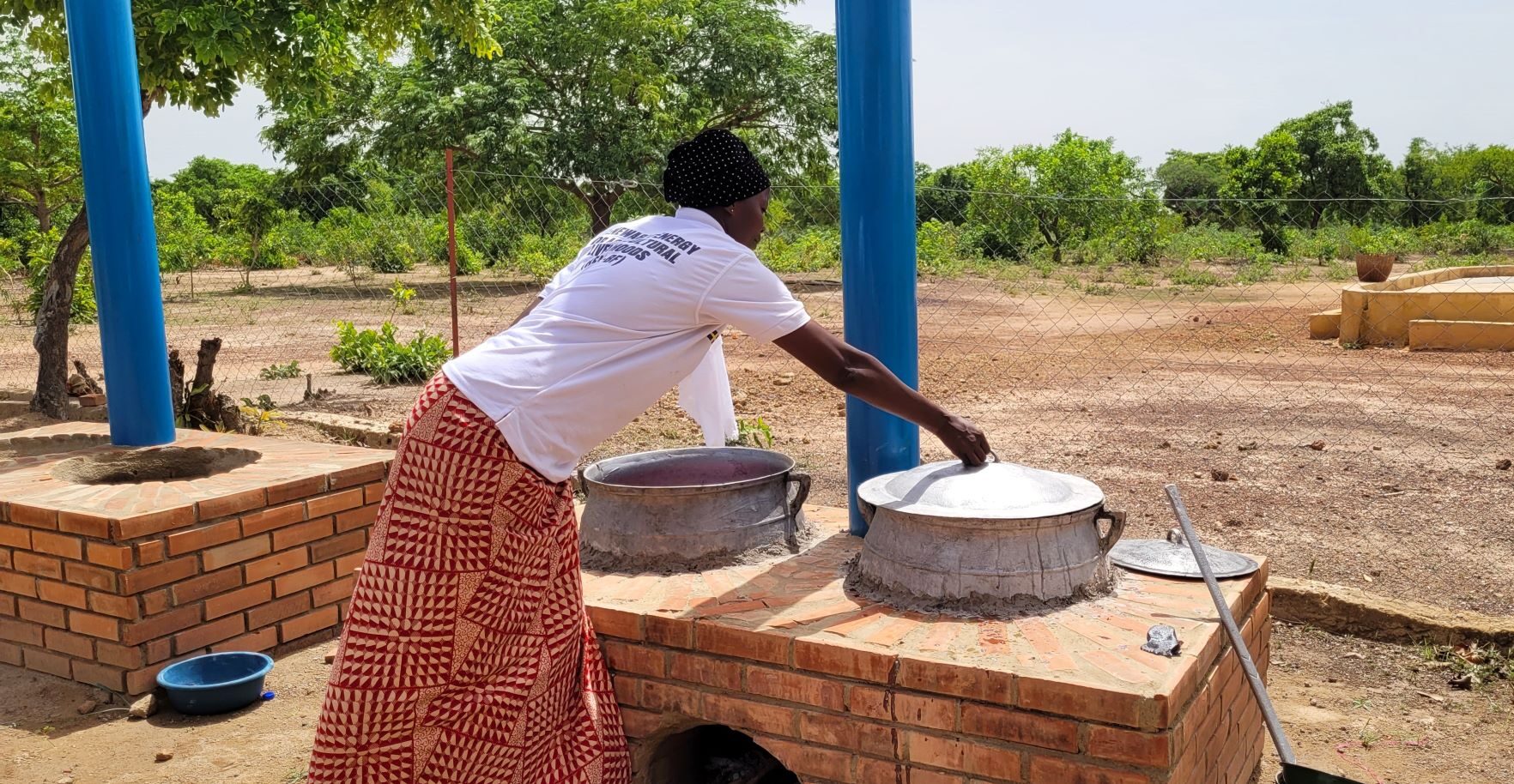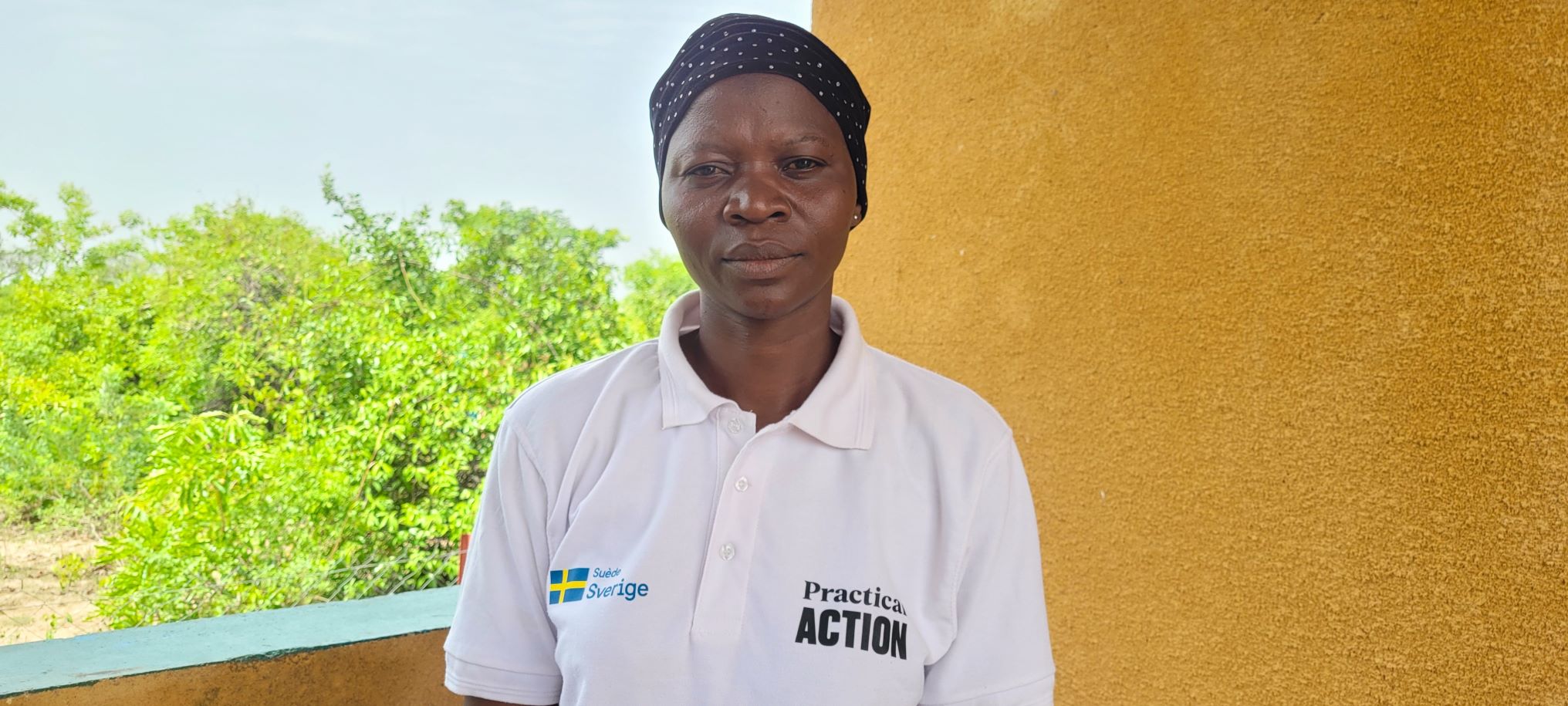In Burkina Faso, agriculture is the key source of livelihood. Farmers face significant challenges, particularly in rural areas where access to energy remains a critical issue. These difficulties include inadequate infrastructure, prohibitive costs for available energy solutions, and heavy reliance on traditional energy sources like firewood, which intensifies environmental degradation and affects community health.
Practical Action’s REAL (Renewable Energy for Agricultural Livelihoods) programme in Burkina Faso works towards addressing these pressing issues by empowering communities, enhancing their skills, and boosting their incomes. Communities are now fostering sustainable development and building resilient livelihoods with the support of this initiative funded by the Swedish Embassy.
Energy that enhanced skills and productivity
One of the cooperatives that have undergone a remarkable transformation is the Laaguem Taab La Panga cooperative of shea butter producers, which includes more than 500 women. In Toécé, in the south-central region of Burkina Faso, lives Compaoré Mariam, a dedicated member of this cooperative. Her story is a living testimony to the power of renewable energy and its positive impact on a community.
REAL’s training has been instrumental in the cooperative’s success. The women learned how to utilise energy productively and were provided with institutional stoves specifically adapted to their needs. Introducing solar pumping systems, solar kits, and improved stoves has significantly enhanced their skills and productivity.
Aside from the training, we supported the construction of two stoves at the cooperative’s site, completely transforming the women’s working conditions. Previously, making shea butter was time-consuming and laborious, limited by traditional methods that consumed substantial amounts of wood.

“Before the REAL intervention, we used traditional three-stone stoves to transform shea nuts into butter, which was not easy and required a lot of firewood. For 100 kg of butter, we used one to two cartloads of wood, but now, with the improved institutional stoves, each containing two 30-litre pots, for the same quantity of nuts, we use less than one cartload of wood. This allows us to double our production and preserve the environment”. –
Compaoré Mariam, Laaguem Taab La Panga cooperative member
Now, thanks to the new stoves, Mariam and her colleagues can produce more shea butter at a lower cost, increasing their profits and economic stability. The stoves, designed to be more efficient and less energy-consuming, use less wood, thus reducing costs and preserving local resources. For Mariam, this innovation has opened the door to numerous opportunities.
Since then, Mariam and her cooperative have developed new skills, improved their living conditions, and strengthened family bonds. The increased production and reduced energy expenditure have doubled their income, from 100,000 FCFA to over 200,000 FCFA per production. This improvement has directly impacted the quality of life for cooperative members, allowing them to meet their families’ needs better, invest in their children’s education, and improve their living conditions. “With the income, I help my husband and take care of my children. I contribute to their schooling, clothing, and medical expenses,” concludes Mariam.
Good for people and the planet
Mariam’s story and the Laaguem Taab La Panga cooperative are inspiring examples of how renewable energy can transform lives, improving their productivity, income, and quality of life while promoting sustainable practices and preserving the environment. This shows that energy can be a true source of resilience for communities.
Practical Action envisions a future where every rural community in Burkina Faso has access to sustainable energy solutions. By expanding and innovating programmes like REAL, more communities can thrive. Mariam and her cooperative’s success is just the beginning. REAL has worked with numerous farmers and cooperatives, achieving similar results. With this proven approach, we aim to foster a ripple effect of positive change across the country and beyond, creating a brighter and more sustainable future for all.
